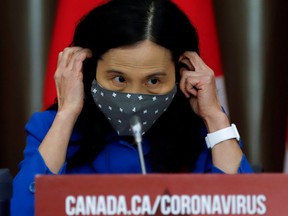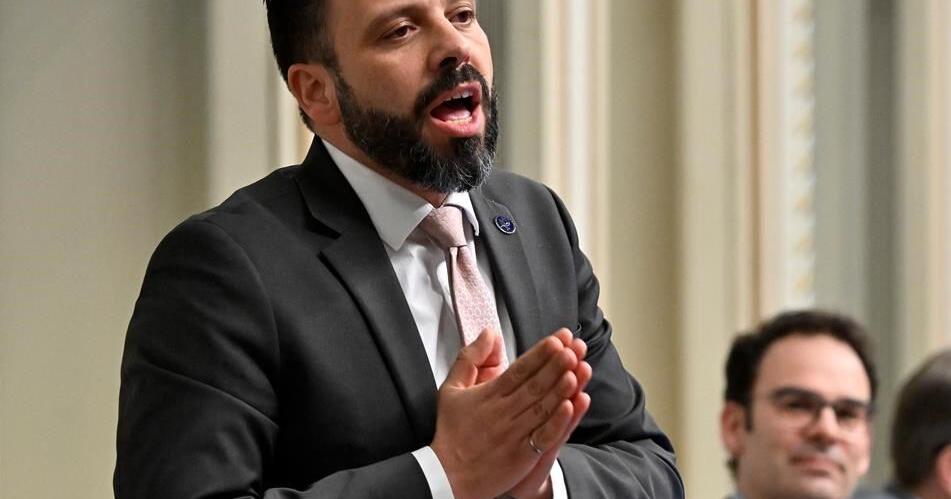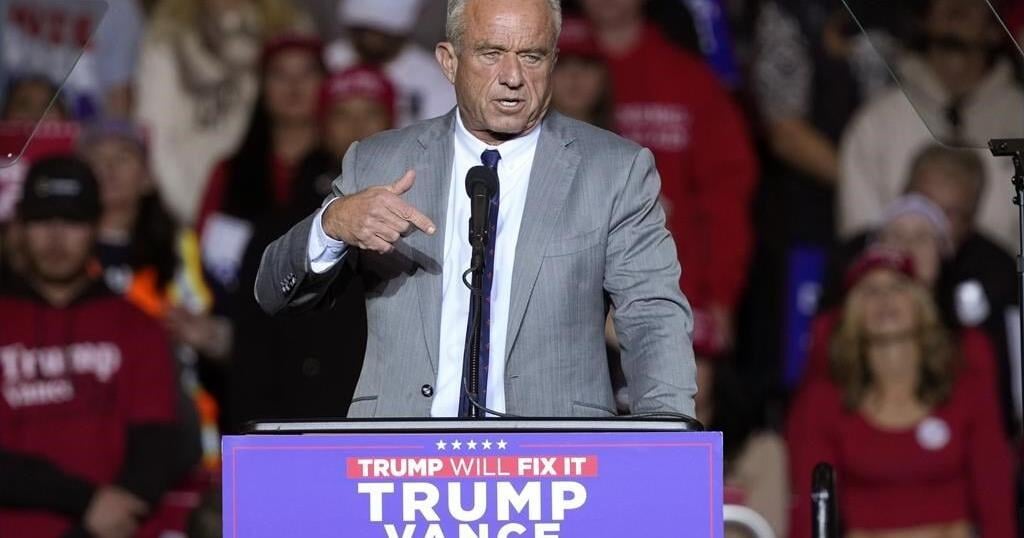Article content
So Justin Trudeau is set to call an election this weekend, even as his top medical advisor warns the country is hitting a fourth wave of COVID-19.

So Justin Trudeau is set to call an election this weekend, even as his top medical advisor warns the country is hitting a fourth wave of COVID-19.
Not that Dr. Theresa Tam would dare saying anything that would make the Prime Minister uncomfortable, even if she has done so for political reasons for other political leaders.
From the beginning of the pandemic, Canada’s chief medical officer has not been shy about making her voice heard on public policy issues. She advised against border restrictions before COVID even arrived in Canada, she warned against masking before demanding that it be done, and she has never shied away from telling provinces they should not lift restrictions.
“I believe in many areas of the country, stricter measures should be put in place as soon as possible,” Tam said on Dec. 18, 2020.
Weeks later she warned provinces not to relax measures as warning signs appeared of a third wave in Canada.
“My concern is that right now if we release some of these measures that a resurgence will occur,” Tam said on Feb. 9, 2021.
Even just weeks ago, Tam was warning against anything more than the most gradual lifting of COVID restrictions.
“International experience with Delta-driven waves underscores the need for gradual and cautious lifting of restrictions until fully vaccinated coverage is high across the population,” Tam said.
Yet now, as we are heading into a fourth wave — her term, not mine — Tam doesn’t think she should be telling the federal government not to call a vote.
“It’s not my role to advise on whether an election should occur or not,” Tam said. “I think the role of the public health agency is to provide guidance should an election take place and how to do that safely.”
The federal Liberals — along with the other parties — have said they expect to conduct standard type campaigns with leaders’ tours, which include an entourage of staffers and media criss-crossing the country with a band of media in tow.
If Tam believes what she says, the campaign should be a concern to her — but it’s not.
In addition, when pressed, Tam said candidates and parties should listen to local public health officials. That’s not a message she has pushed before. In fact, time and again Tam has tried to browbeat local and provincial officials to follow her lead even if it didn’t match the conditions on the ground.
Now, she says we are heading into a fourth wave but that’s fine, get out and vote people, especially by mail! A fourth wave isn’t something Tam is bothered by even as she says that it is coming.
“The latest national surveillance data indicate that a fourth wave is underway in Canada and that cases are plotting along a strong resurgence trajectory,” Tam said Thursday. “Nationally, there are now over 13,000 active cases, more than double from two weeks ago.”
I’m one of those who believes that vaccines are working and that despite slow starts by the federal and provincial governments, we are on our way to success with the shots. But that isn’t where Trudeau is and that isn’t where Tam is.
They have continued to rail against premiers, especially conservative premiers, for not doing enough to get populations vaccinated. They have attempted to politicize the pandemic response and they will do so during the election.
The Trudeau Liberals, aided and abetted by Dr. Tam, have attacked any premier at political odds with the federal government. I expect them to do that throughout the campaign.
I would prefer politicians not politicize pandemics, but that’s like asking a scorpion not to sting you — it’s what they do.
That Dr. Tam is willing to play such obvious politics with COVID-19 and the re-election chances of her boss tells us all we need to know.
Regardless of who wins, Tam must go.

MONTREAL – A Quebec political party has voted to support one of its members facing backlash for saying that racialized people are regularly disparaged at the provincial legislature.
Québec solidaire members adopted an emergency resolution at the party’s convention late Sunday condemning the hate directed at Haroun Bouazzi, without endorsing his comments.
Bouazzi, who represents a Montreal riding, had told a community group that he hears comments every day at the legislature that portray North African, Muslim, Black or Indigenous people as the “other,” and that paint their cultures are dangerous or inferior.
Other political parties have said Bouazzi’s remarks labelled elected officials as racists, and the co-leaders of his own party had rebuked him for his “clumsy and exaggerated” comments.
Bouazzi, who has said he never intended to describe his colleagues as racist, thanked his party for their support and for their commitment to the fight against systemic racism.
Party co-spokesperson Gabriel Nadeau-Dubois said after Sunday’s closed-door debate that he considers the matter to be closed.
This report by The Canadian Press was first published Nov. 18, 2024.
The Canadian Press. All rights reserved.

RICHMOND, Va. (AP) — Democrats who control both chambers of the Virginia legislature are hoping to make good on promises made on the campaign trail, including becoming the first Southern state to expand constitutional protections for abortion access.
The House Privileges and Elections Committee advanced three proposed constitutional amendments Wednesday, including a measure to protect reproductive rights. Its members also discussed measures to repeal a now-defunct state constitutional ban on same-sex marriage and ways to revise Virginia’s process to restore voting rights for people who served time for felony crimes.
“This meeting was an important next step considering the moment in history we find ourselves in,” Democratic Del. Cia Price, the committee chair, said during a news conference. “We have urgent threats to our freedoms that could impact constituents in all of the districts we serve.”
The at-times raucous meeting will pave the way for the House and Senate to take up the resolutions early next year after lawmakers tabled the measures last January. Democrats previously said the move was standard practice, given that amendments are typically introduced in odd-numbered years. But Republican Minority Leader Todd Gilbert said Wednesday the committee should not have delved into the amendments before next year’s legislative session. He said the resolutions, particularly the abortion amendment, need further vetting.
“No one who is still serving remembers it being done in this way ever,” Gilbert said after the meeting. “Certainly not for something this important. This is as big and weighty an issue as it gets.”
The Democrats’ legislative lineup comes after Republican Governor Glenn Youngkin, to the dismay of voting-rights advocates, rolled back a process to restore people’s civil rights after they completed sentences for felonies. Virginia is the only state that permanently bans anyone convicted of a felony from voting unless a governor restores their rights.
“This amendment creates a process that is bounded by transparent rules and criteria that will apply to everybody — it’s not left to the discretion of a single individual,” Del. Elizabeth Bennett-Parker, the patron of the voting rights resolution, which passed along party lines, said at the news conference.
Though Democrats have sparred with the governor over their legislative agenda, constitutional amendments put forth by lawmakers do not require his signature, allowing the Democrat-led House and Senate to bypass Youngkin’s blessing.
Instead, the General Assembly must pass proposed amendments twice in at least two years, with a legislative election sandwiched between each statehouse session. After that, the public can vote by referendum on the issues. The cumbersome process will likely hinge upon the success of all three amendments on Democrats’ ability to preserve their edge in the House and Senate, where they hold razor-thin majorities.
It’s not the first time lawmakers have attempted to champion the three amendments. Republicans in a House subcommittee killed a constitutional amendment to restore voting rights in 2022, a year after the measure passed in a Democrat-led House. The same subcommittee also struck down legislation supporting a constitutional amendment to repeal an amendment from 2006 banning marriage equality.
On Wednesday, a bipartisan group of lawmakers voted 16-5 in favor of legislation protecting same-sex marriage, with four Republicans supporting the resolution.
“To say the least, voters enacted this (amendment) in 2006, and we have had 100,000 voters a year become of voting age since then,” said Del. Mark Sickles, who sponsored the amendment as one of the first openly gay men serving in the General Assembly. “Many people have changed their opinions of this as the years have passed.”
A constitutional amendment protecting abortion previously passed the Senate in 2023 but died in a Republican-led House. On Wednesday, the amendment passed on party lines.
If successful, the resolution proposed by House Majority Leader Charniele Herring would be part of a growing trend of reproductive rights-related ballot questions given to voters. Since 2022, 18 questions have gone before voters across the U.S., and they have sided with abortion rights advocates 14 times.
The voters have approved constitutional amendments ensuring the right to abortion until fetal viability in nine states: Arizona, California, Colorado, Maryland, Michigan, Missouri, Montana, Ohio and Vermont. Voters also passed a right-to-abortion measure in Nevada in 2024, but it must be passed again in 2026 to be added to the state constitution.
As lawmakers debated the measure, roughly 18 members spoke. Mercedes Perkins, at 38 weeks pregnant, described the importance of women making decisions about their own bodies. Rhea Simon, another Virginia resident, anecdotally described how reproductive health care shaped her life.
Then all at once, more than 50 people lined up to speak against the abortion amendment.
“Let’s do the compassionate thing and care for mothers and all unborn children,” resident Sheila Furey said.
The audience gave a collective “Amen,” followed by a round of applause.
___
Associated Press writer Geoff Mulvihill in Cherry Hill, New Jersey, contributed to this report.
___
Olivia Diaz is a corps member for The Associated Press/Report for America Statehouse News Initiative.

NEW YORK (AP) — President-elect Donald Trump says he will nominate anti-vaccine activist Robert F. Kennedy Jr. to lead the Department of Health and Human Services, putting him in charge of a massive agency that oversees everything from drug, vaccine and food safety to medical research and the social safety net programs Medicare and Medicaid.
“For too long, Americans have been crushed by the industrial food complex and drug companies who have engaged in deception, misinformation, and disinformation when it comes to Public Health,” Trump said in a post on his Truth Social site announcing the appointment. Kennedy, he said, would “Make America Great and Healthy Again!”
Kennedy, a former Democrat who ran as an independent in this year’s presidential race, abandoned his bid after striking a deal to give Trump his endorsement with a promise to have a role in health policy in the administration.
He and Trump have since become good friends, with Kennedy frequently receiving loud applause at Trump’s rallies.
The expected appointment was first reported by Politico Thursday.
A longtime vaccine skeptic, Kennedy is an attorney who has built a loyal following over several decades of people who admire his lawsuits against major pesticide and pharmaceutical companies. He has pushed for tighter regulations around the ingredients in foods.
With the Trump campaign, he worked to shore up support among young mothers in particular, with his message of making food healthier in the U.S., promising to model regulations imposed in Europe. In a nod to Trump’s original campaign slogan, he named the effort “Make America Healthy Again.”
It remains unclear how that will square with Trump’s history of deregulation of big industries, including food. Trump pushed for fewer inspections of the meat industry, for example.
Kennedy’s stance on vaccines has also made him a controversial figure among Democrats and some Republicans, raising question about his ability to get confirmed, even in a GOP-controlled Senate. Kennedy has espoused misinformation around the safety of vaccines, including pushing a totally discredited theory that childhood vaccines cause autism.
He also has said he would recommend removing fluoride from drinking water. The addition of the material has been cited as leading to improved dental health.
HHS has more than 80,000 employees across the country. It houses the Food and Drug Administration, the Centers for Disease Control and Prevention, the Medicare and Medicaid programs and the National Institutes of Health.
Kennedy’s anti-vaccine nonprofit group, Children’s Health Defense, currently has a lawsuit pending against a number of news organizations, among them The Associated Press, accusing them of violating antitrust laws by taking action to identify misinformation, including about COVID-19 and COVID-19 vaccines. Kennedy took leave from the group when he announced his run for president but is listed as one of its attorneys in the lawsuit.
__ Seitz reported from Washington.
The Canadian Press. All rights reserved.


Trade-X reviews: peculiarities of transactions on trading platform


Forecasters issue ‘bomb cyclone’ warning for B.C., with 120 km/h winds predicted


Dix out as health minister as Eby introduces a drastically reshaped B.C. NDP cabinet


Prince Harry in Vancouver as Invictus Games school program launches online


The Advantages of Using Bitcoin for Online Casino Betting: Faster, Cheaper, Safer


Transportation Safety Board investigating after plane goes off runway in Vancouver


Trudeau says G20 leaders’ statement on Ukraine is not strong enough


Rafael Nadal calls it an emotional day as he loses in the Davis Cup before retirement